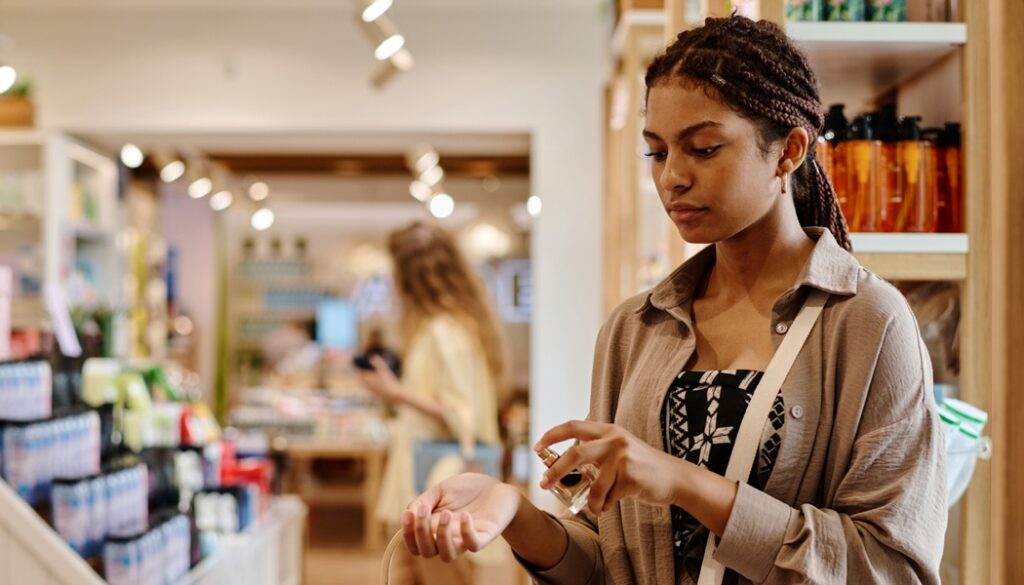[ad_1]
Brazil, the world’s second largest perfume market, just behind the United States, is a very specific market. Sales of the category in the country are mainly concentrated in direct sales channels and franchise stores, with three main players: Natura, Avon and Grupo Boticário.
“Brazil is one of the world giants of direct sales. It is something very representative of the country and this channel works very well. One of the main advantages of this channel is the personalization of the sale, which brings the consumer closer to the brand. Actually, brand franchise networks work in a similar way and are one of the most dynamic channels in the country. After the pandemic, franchising grew exponentially in Brazil, and perfumery followed suit,” explains Ana Paula Magri, CEO of Grupo Vizcaya.
For more than 30 years, the company has been marketing international perfumes in the Brazilian market. Its portfolio includes luxury brands such as Montblanc, Jimmy Choo, Coach and Lacoste. “Today, there are more diversified opportunities to reach end consumers, with faster results. The Internet has given us this strength. Before, we had to wait for consumers visiting stores to buy, today we get to them in a few clicks,” adds Ana Paula Magri.
Rapid growth online
Online sales are indeed one of the channels where perfume sales are growing the most in Brazil.
According to Neotrust Confi, a research firm specializing in e-commerce, online sales in the category increased by 31.5% in the first half of 2024, the highest growth of all beauty segments in Brazil.
“We are seeing an increase in brands’ investment in online perfume sales, linked to the growing influence of social media on purchasing habits and to the online support of celebrities, who are becoming brand ambassadors. More than 70% of sales are made on specialized sites, such as Beleza na Web and Época Cosméticos,” says Juliana Lorenzetti, growth director at Neotrust Confi.
Brazilian brand Ciclo, for example, is currently achieving a volume of online perfume sales very close from that of retail sales. However, “in the race to capture customer interest, the main advantage of retail is the possibility of testing, which is so important when choosing a fragrance,” explains Luane Lohn, the brand’s CEO. The brand is present in more than 5,000 points across the country, in specialized beauty stores and department stores.
Coty has also invested heavily in Brazilian retail with perfume brands such as Adidas, David Beckham, Gabriela Sabatini and Katy Perry. Just over a year after the massive deployment of its lifestyle fragrance offering in the country, the group exceeds 6,000 points of sale in the country.
Significant opportunities in retail
“Although franchises and direct sales continue to play an important role in this market, we are building the category in new channels that have started to add more beauty and wellness products to their shelves in recent years,” emphasizes Bruno Wolmer, VP Sales of Coty Brasil. “There is still enormous scope for development in retail, whether by strengthening the selective channels that already sell perfumes, such as department stores, beauty e-commerce and specialty perfumeries, or by developing new channels, which also benefit from a very high penetration rate among Brazilians. This is particularly the case with pharmacies,” he adds.
The pharmaceutical channel has indeed been fundamental in the group’s strategy to boost its lifestyle perfumes. “Pharmacies offer an accessible and densely networked environment in Brazil, with an ever-growing offer of beauty and wellness items. As we already sell several categories in pharmacies, such as moisturizers, nail polishes and deodorants, we have a good distribution network and a well-established commercial relationship with the chains, and this has been an important pillar in this rapid expansion of our distribution and the presence of our perfume brands in this channel,” explains Wolmer.
[ad_2]
Source link

